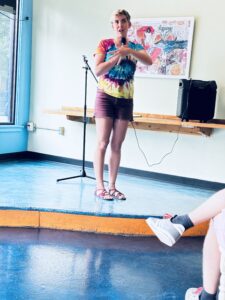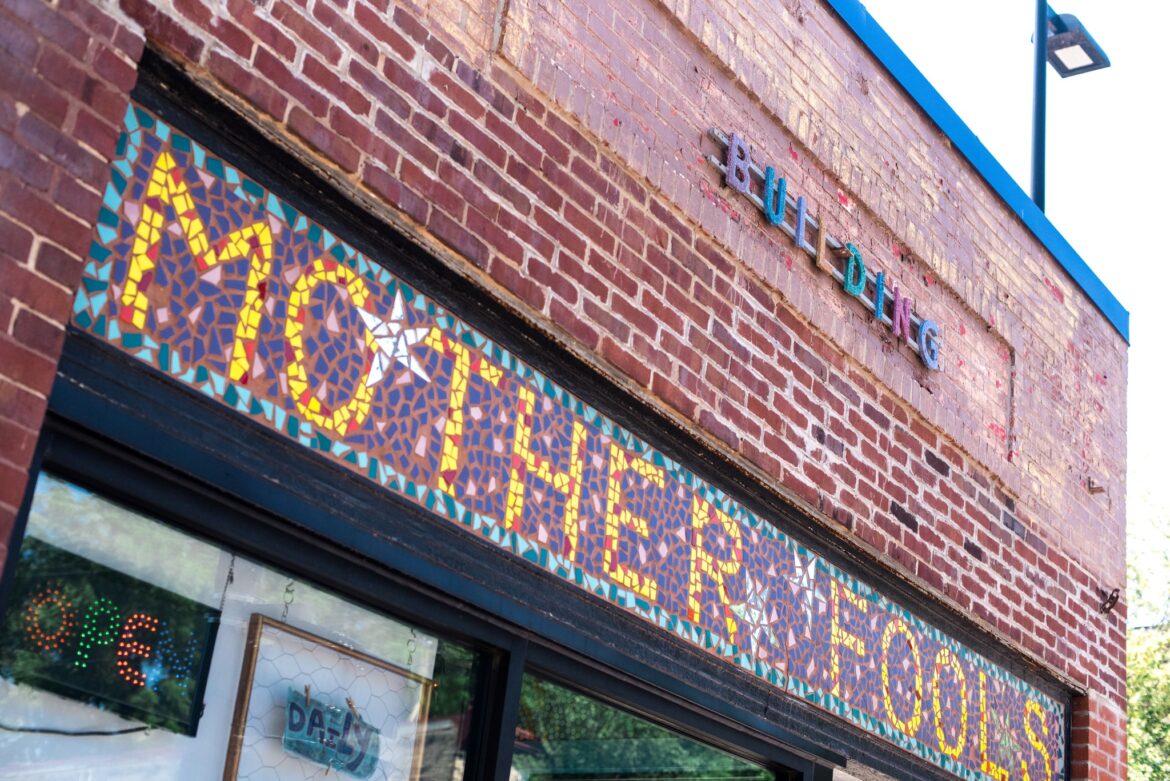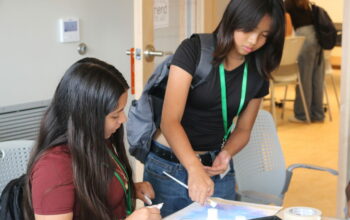A couple weeks ago, Madison City Story Slam hosted a storytelling event at Mother Fool’s Coffeehouse on Williamson Street. The storytellers were instructed by the host to share five-minute stories on the subject of dirty laundry and follow a simple rule: “Don’t be sexist, don’t be racist, don’t be transphobic.”
Rather than presenting this event as a competition, Madison City Story Slam encourages listeners to give the storytellers compliments. Throughout the night, members of the audience wrote encouraging words for the storytellers on Post-it notes, which they tacked onto white boards at the back of the room.

Several storytellers took to the stage, discussing dirty laundry in the literal or in the metaphorical sense. One 70-something woman shared a story about living with another woman in an apartment without air conditioning and the many loads of laundry they generated during a recent hot summer.
Another woman described watching her grandmother use her early washing machine, which had a hand-wringer, and the trouble she got into when she threw two boxes of crayons and a Chatty Cathy doll into the machine.
Before a woman who looked to be in her late 20s stepped to the mic, the event’s host warned the audience that she would be sharing a sad story on a sensitive subject.
The woman described living as a child with her single mother and recalled how, after her mother brought home different boyfriends, dirty laundry accumulated in their house. But mostly she spoke about how unsafe she felt in her own house while she was growing up.
She spoke calmly and, after reading the first of her two pages of notes, kindly asked the audience if she could continue. The audience listened attentively and clapped afterward for her courage to share her story.
Another story that drew a strong response from the audience focused on gender roles and their intersection with dirty laundry in a household headed by two academics. The speaker in this case was a young woman named Miriam who explained that she went to graduate school to study the psychology of gender and sees “everything through the lens of gender.” She described how both of her parents did the same job, but her stepmother, like most women who work outside of the home, did a disproportionate amount of domestic labor, cooking, cleaning and providing child and elder care.
“My dad and my stepmother are both biology professors. They have literally the same job. They share a lab,” she said. “My father and stepmother married when I was 11 and had twins when I was 15. And it was remarkable to me to watch how quickly and markedly their roles changed.”
After the twins were born, her dad grew to resemble “a well-intentioned but pretty useless sitcom character,” while her stepmother shouldered most of the household chores. But eventually her stepmother fought back. Miriam recounted how, at a family gathering, her stepmother pulled her aside to share that she was performing an experiment on her dad. She was going to stop washing his underwear to see how long it would take him to notice that his shorts weren’t getting cleaned. “I thought this was brilliant, and I was very excited to hear the results,” Miriam said.
A few weeks later, Miriam said, her stepmother called her, laughing so hard she was crying, and said, “Well, we have results. Your dad just came back from the grocery store. He bought a new package of underwear.” Her father never realized that his wife had just stopped washing his underpants, and, Miriam said, being able to laugh about it with her stepmother was one of her favorite stories about the solidarity between them. The crowd laughed and cheered for Miriam as she stepped off the stage.





